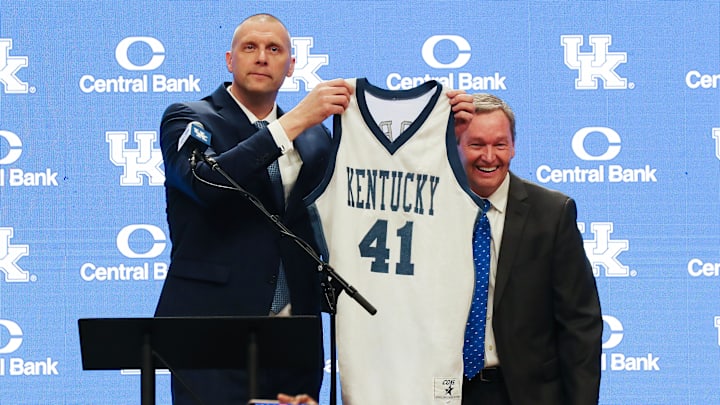When Name, Image, and Likeness (NIL) rules were introduced to college sports, they promised to revolutionize the landscape. Athletes could finally monetize their personal brands, earning money through endorsements and sponsorships. It was supposed to level the playing field, empowering student-athletes to benefit from the value they bring to their schools. That is not at all what it is. You have seen the Trent Noah ARH videos, and the Clark's Pump n Shop with Lamont's rap, that is what it is supposed to be.
Recent developments show that NIL has spiraled far beyond its original intent, with some figures using it as a weaponized tool in recruiting battles. A case in point: the incendiary comments from Noah Reisenfeld, EVP of NIL and Business Development for YMAPAA Sports, on social media platform X (formerly Twitter).
The Tweets That Sparked Controversy
Guys like this run college football now? pic.twitter.com/r7iTkA3nFn
— Justin Rowland (@RowlandRIVALS) January 7, 2025
Reisenfeld, who also identifies as the "Head NIL Agent," took aim at Tulane fans, threatening to steer two players away from the Green Wave program in retaliation for what he described as a toxic fan base.
- “Yeah and I got two (players) entertaining Tulane right now and I’m going to send them to Memphis and another AAC school just because of your (expletive) fan base rn,” Reisenfeld tweeted.
- When a fan suggested he simply stop interacting with Tulane supporters, Reisenfeld doubled down: “Nah I just can’t wait til tomorrow when I take two kids looking at Tulane to rival schools and blame y’all for it and continue to watch your demise. I’m here to stay.”
The remarks, punctuated by insults and unnecessary provocations, reflect a growing concern: NIL agents wielding unchecked influence over college athletes' decisions, often for personal or petty reasons.
Less than a day later, a player who had visted Tulane Jadon Thompson, committed to Memphis. It is not known if that is the same player who Noah was referencing.
NIL: A System Gone Awry
NIL was envisioned as a way for players to profit from their talents and hard work, not as a vehicle for agents to exploit rivalries or turn recruiting into a free-for-all. Which, is exactly what has happened. Agents have power to take athletes to another school for any reason.
Critics have long argued that NIL could blur the line between amateur and professional sports, and Reisenfeld’s comments add fuel to that fire. Instead of focusing on athletes’ opportunities, conversations like these center on power plays, vendettas, and financial leverage.
This kind of behavior tarnishes the credibility of NIL agents and the process itself. If an agent can publicly weaponize their influence against a school’s fanbase, it raises questions about the ethics and professionalism of all involved. Are the kids even going to benefit or is it just the agents?
The Need for Reform
Is NIL turning college athletes into stressed out, brand-obsessed influencers? If this continues, will there even be room left for sports? We can’t let NIL turn athletes into exhausted products. @NCAA it’s time to take action before it’s too late. #MentalHealthMatters #NILReform
— NILReform (@Voice4NILReform) November 13, 2024
Reisenfeld’s tweets highlight a pressing issue: NIL desperately needs clearer regulations and oversight. While the NCAA has struggled to define and enforce boundaries, the current lack of structure has created a Wild West environment where anything goes.
Key areas for reform include:
- Agent Accountability: NIL agents should operate under a strict code of conduct, ensuring their actions prioritize the athletes they represent rather than personal vendettas or biases.
- Transparency in Deals: Schools and athletes should publicly disclose NIL agreements to ensure they align with ethical standards.
- Education for Athletes: Players must be educated on how to navigate NIL opportunities without falling victim to manipulative agents or unsavory practices.
A Shadow Over College Sports
Reisenfeld’s behavior casts a shadow over the entire NIL system. Instead of celebrating players’ ability to capitalize on their talents, stories like these dominate the narrative, sowing distrust and frustration among fans and stakeholders alike. This has to change, collectives just offering money to come play is not how this system was supposed to go.
Reisenfeld’s comments are a wake-up call. NIL was meant to empower athletes, not agents, and certainly not to fuel public feuds. The NCAA has to do something, and knowing the NCAA it will be 5 years before anything is even thought about.
